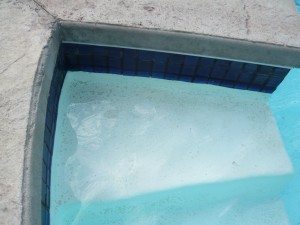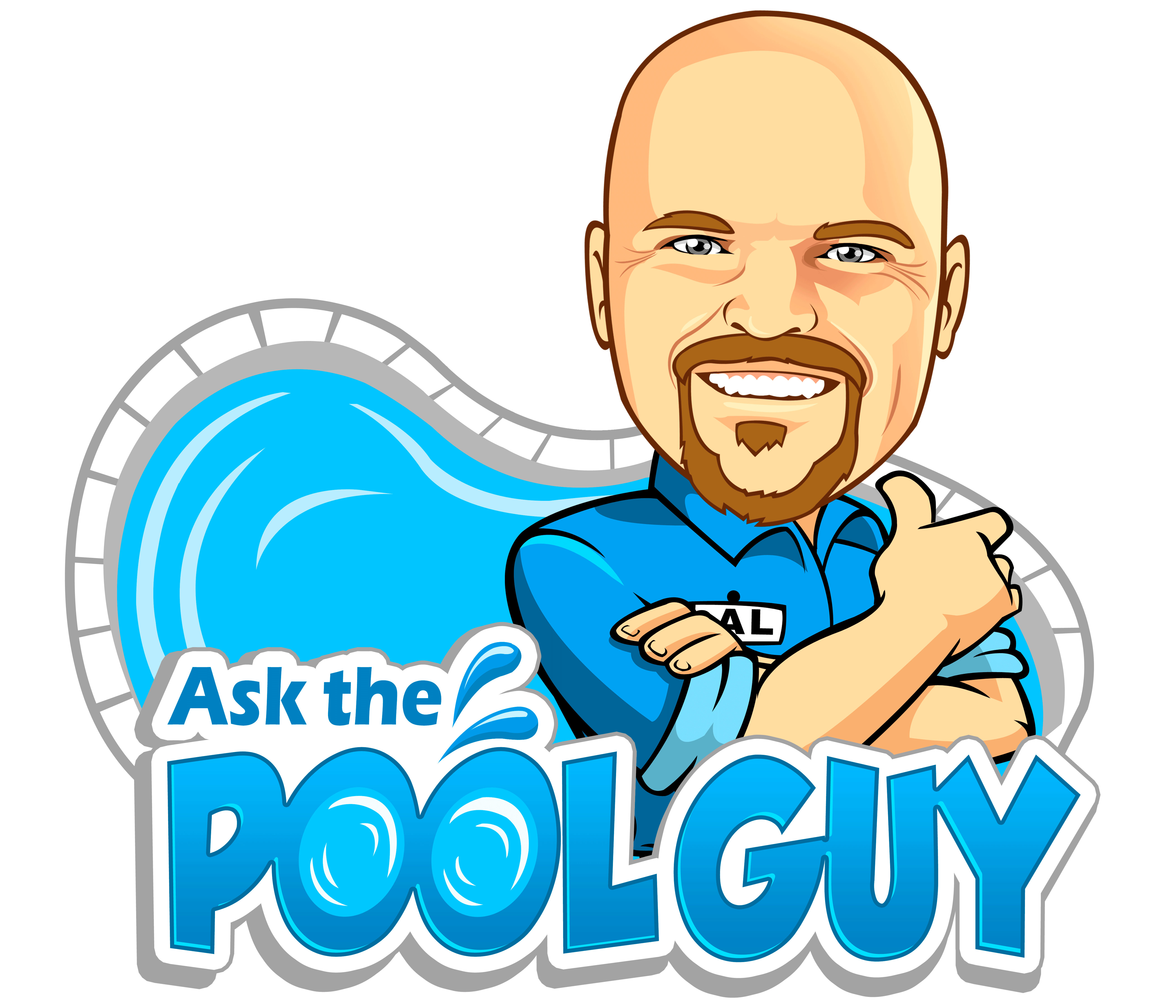Many people paint their swimming pools- paint is one of the most common pool surfaces out there today. A word of caution though, once you paint a pool, it will always need to be painted. Sometimes it’s best to live with an older marcite finish until you can re-marcite or re-pebble, versus just putting some paint on the pool and thinking it will hold up for years. It’s a big job, and one that will have to be  repeated often.
repeated often.
There are three main types of pool paint out there: Epoxy, Chlorinated Rubber Based, and Acrylic Pool Paint.
Epoxy- this type of paint is used on new constructions and pools that were previously painted with epoxy paint. It has a long lifespan and is very durable. It can stand up to UV rays, pool cleaners, and just about any pool chemical treatment. It typically lasts 7-10 years.
Chlorinated Rubber Base- This type of pool paint is not as durable or expensive as epoxy paint. But it’s very dependable and easy to use. It’s easy to apply and not hard on the wallet. It lasts between 2-3 years.
Acrylic Pool Paint- this type of paint is nice because it can be used on any surface. It is easy to apply and cleans up with just water. It’s most ideal for commercial applications that get repainted every couple of years. It lasts only 2-3 years.
Do you already have a painted pool and are experiences issues with it? Take a look through this list of common problems associated with painted pools to find answers to your questions.
- My paint is fading! Don’t worry, painted pools are bound to fade overtime. Nothing will stop this. You can brighten up the paint by using a mild acid-wash. Acid is used in pools to remove any dirt or filament that has settled on the surface of the pool walls and floors. After cleaning your pool with the acid solution, rinse your pool well and refill. It should look brighter.
- My pool paint is bubbling! Blistering and bubbling is almost always caused by improper preparation. The pool paint has to be applied to a clean and dry surface. Any moisture in the surface can cause bubbling. The right outdoor conditions can affect how well your pool looks after being painted. You want to avoid extremely hot temperatures and days with high humidity.
- My pool paint is chalking! Some painted surfaces will, unfortunately, break down over time. This might be the reason for the chalky and powdery residue rubbing off on your hands and feet. To avoid this issue, it is important to always keep your pool water properly balanced. Water chemistry and pool maintenance are they key here. Also, the total alkalinity must be in the correct range.
